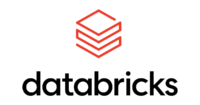Building a Modern Data Stack
Your organization understands the value of data, but struggles to put the right data in the hands of the right people at the right time. A modern data stack is essential in your organisation when you want get value out of all your data. To build a modern data stack you need a data warehouse that allows you to build data sets that are: up to date, reliable, maintainable, documented, well-governed and ready for the cloud. But also, intelligent tools and the right skills in your team are needed for a foundation on which you build an organization where data democratization is a reality.
Article- Making data available and accessible to the entire organization
Learn more about the right data, at the right time, in the right place
Ending of the Traditional Data Warehouse
The traditional data warehouse is moving to the cloud and a new stack of tools, often driven by open source initiatives have changed the playing field beyond recognition. Until recently, data was “owned” by IT departments. Business units such as marketing, used the data to make business decisions, but they always had to go through the IT department to get the data. The goal of data democratization is to have anybody use data at any time to make decisions with no barriers to access or understanding. Data needs to be generally available and a modern data warehouse enables that data democratization. A radical paradigm shift has started in the Business Intelligence (BI) space and the end of the traditional data warehouse is near, ready to be replaced by more relevant architectures that can be deployed on the cloud within the blink of an eye.



The Modern Data Stack
A modern data stack is centered on a powerful data warehouse. Data is loaded directly into the warehouse. A robust and reliable transformation layer is used to turn that raw data into dependable and meaningful datasets. As a company we have partnered with many key players in the ecosystem and below we give suggestions for solutions to start using in your organization.
- Cloud Data Platform: Azure, AWS, GCP
- Modern data warehouse: Amazon Redshift, Google BigQuery, Snowflake, DataBricks
- Business Intelligence: Tableau, PowerBI. Looker
- Transformation and Orchestration: Apache Airflow, DBT
- Data Ingestion: Fivetran, Stitch
We can help you make the best selection possible based on the unique setup at your organization.

Allows you to build data sets
The Modern Data Team
As data tools change, so do the people who use them. Business users want to self-serve and be data-driven so the data has to be ‚ready‘ to use. Recently, we introduced the role of Analytics Engineer to act as the bridge between data engineers and data analysts. It is their job to build well tested, up to date and documented datasets that the rest of the company can use to answer their own questions. They are technical enough to easily be able to apply software engineering best practices like version control and CI/CD but also need to be able to communicate effectively with stakeholders to teach them about these things.
Doing Analytics right, by getting the right data in the hands of the right people at the right time. Fully automated and Iteratively!
SOME OF OUR TECHNOLOGY CONTRIBUTIONS
Data engineers
Data analysts
Data scientists
Machine learning engineers
Cloud engineer

Why an Analytics Engineer
A bridge between data engineers and data analysts
The role of analytics engineer recently emerged because organizations now understand the value of data-driven decision making and you have trained domain experts to become analysts and hired data engineers to make the data readily available. However, there is often not enough synergy between the two roles.
Data Engineers
Focus on building a solid foundation for the data infrastructure that can be used by all domains within your organization. In this way, they make it easier for others to build solutions for their own, specific data use cases and use tools that fit their experience and needs.
Analytics Engineer
Improve the accuracy, reliability, security and speed of delivery of analytics workflows. Speed up the organization-wide adoption use self-service analytics. Start a sane, agile data governance that focuses on value, quality and use of data instead of on process and roles.
Data Analysts
Combine in-depth business knowledge and data skills to support decision making in your organization with reports and visualisations. For that they need to be able to work with aggregated data of enough quality and have the tools to continue to combine, aggregate and improve.
Work as an Analytics Engineer?
Come join our growing team of Data Experts
Related Content
Watch our webinar about the Modern Data Landscape
In this webinar – The Modern Data Landscape, the Road to Success – together with customers Funda and Bol.com, we share inspiration, experiences and tools to successfully set up a data-driven organization. We discuss frequently asked questions about data democratization like how do I set up my internal operation? What can I do with my data? How do I optimize my products or services using data? And much more.
- Chapter 1: Introduction Modern Data Landscape
- Chapter 2: Introduction of the role of Analytics Engineer
- Chapter 2: Data Skills in an organization
- Chapter 3: Bol.com about data democratization and use of data
- Chapter 4: Funda about their journey to a data driven organization and use cases
- Chapter 5: Data Literacy

Introduction Analytics Engineer
Check out this interview with our Analytics Engineer Juan Perafan and Stijn Tonk Chief Strategy, at our technology conference GoDataFest. They share their insights on the upcoming role of the Analytics Engineer in the modern data team and how it ads value to your organization.
Join our Meetup Group Analytics Engineering
This is a meetup group for data scientists, BI professionals, data engineers, analysts and literally everybody else interested in data democratization, analytics, or how the data landscape is evolving.

TECHNOLOGY STACK
Let's discuss the next step
Are you interested in how we can help your organization? Contact our Sales Manager Tim Waijers if you want to know more. He’ll be happy to help you!





